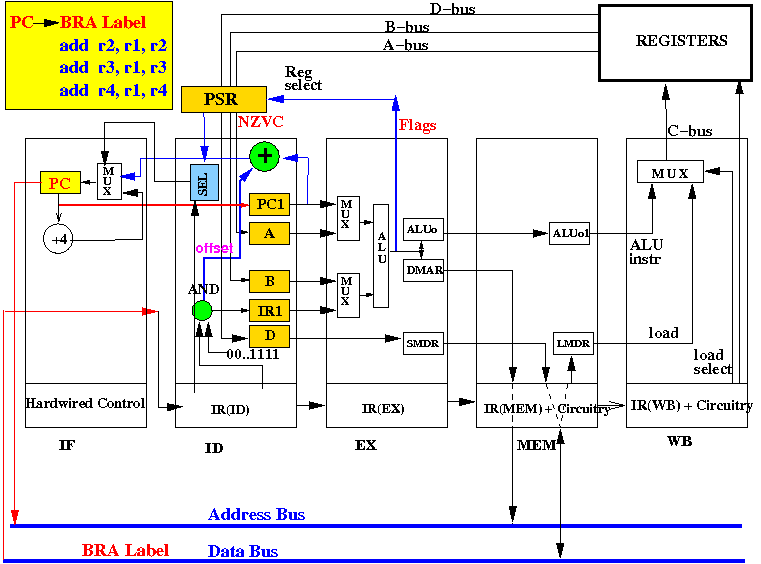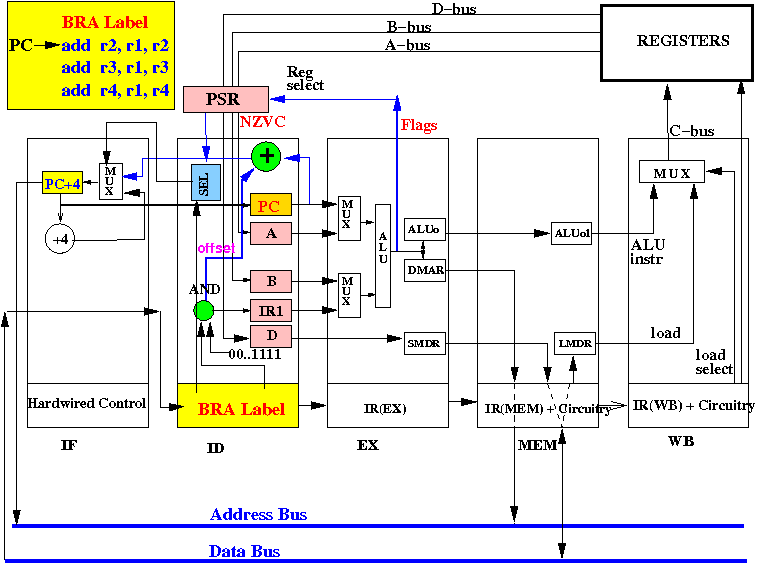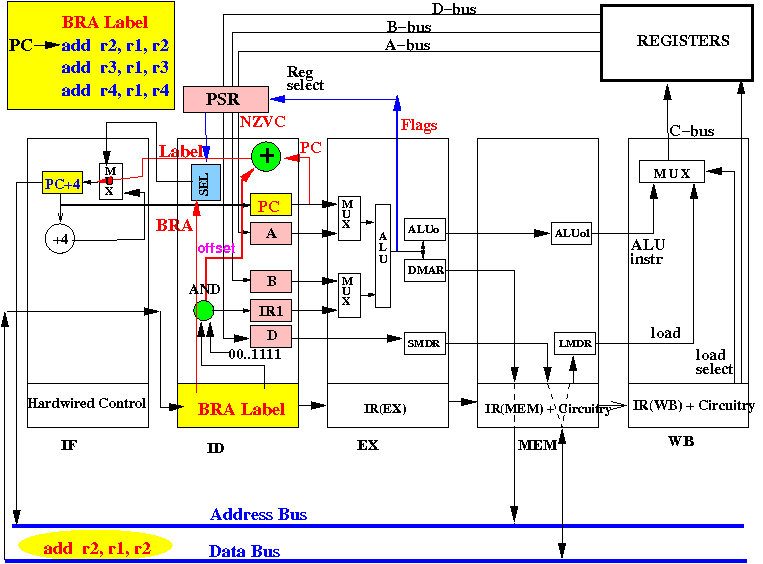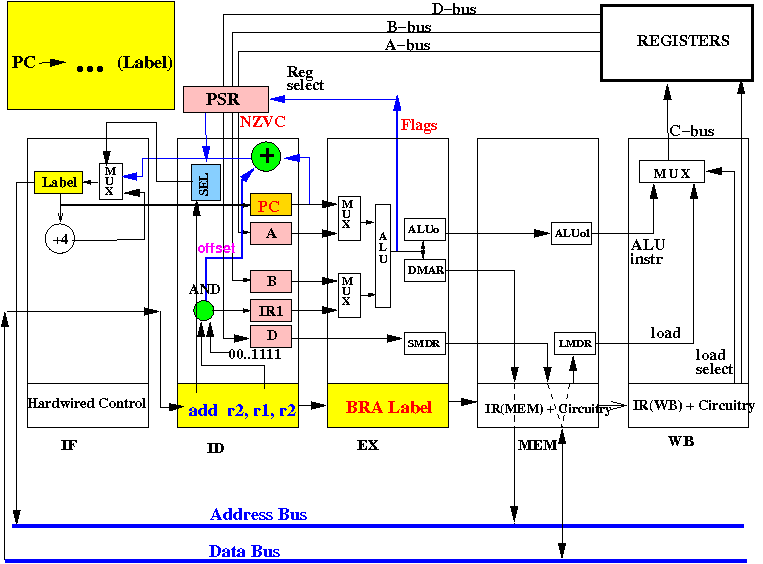Executing an
unconditional branch instruction
using the modified
ID stage
Executing an
unconditional
branch instruction using the
modified ID stage
- Example
Start of cycle 1:
IF stage
is fetching the branch instruction:

Executing an
unconditional
branch instruction using the
modified ID stage
- Example
End of cycle 1:
BRA Lable is
fetched in IR(ID)

Because
we always make a
copy of the
PC into the
ID stage,
the value of
PC
available as
source operand !
Executing an
unconditional
branch instruction using the
modified ID stage
- Example
Start of cycle 2:
ID stage
computes PC + offset,
IF stage
fetches add r2,r1,r2:

The
MUX
will always select
PC + offset (= Label)
as input when
executing an
unconditional branch instruction
Executing an
unconditional
branch instruction using the
modified ID stage
- Example
End of cycle 2:
PC is
updated to address Label
,
add r2,r1,r2 is
fetched in IR(ID)

The CPU made the
branch in
2 clock periods !!
There was a
one-instruction
branch delay...
DEMO (using Aaron's pipelined CPU)
- Execute this
command on
a lab machine:
/home/cs355001/demo/pipeline/6-speedup-bra
|
Program being
executed:
0: 10 62 // mov r1,#62
18 1 // mov r2,#1
26 1 // mov r3,#1
34 1 // mov r4,#1
42 1 // mov r5,#1
50 1 // mov r6,#1
58 1 // mov r7,#1
0 0 // nop
0 0 // nop
0 0 // nop
0 0 // nop
0 0 // nop
12: 192 44 // bra +44
16 10 // add r2,r1,r2 (R2=R1+R2) <-- Only one instr is executed
24 11 // add r3,r1,r3 (R3=R1+R3)
32 12 // add r3,r1,r4 (R4=R1+R4)
40 13 // add r4,r1,r5 (R4=R1+R4)
48 14 // add r5,r1,r6 (R4=R1+R4)
56 15 // add r6,r1,r7 (R4=R1+R4)
56: 0 1 // <---- bra target (56 = 111000)
0 2
|
|
Demo: delayed branching
in a real (SPARC) CPU
-
NOTE:
the
delayed branching instruction
can be
avoided by
stalling the
IF stage
(thus
preventing the
CPU from
fetching the
next instruction....)
- Most CPU's
(e.g.: ARM) will
avoid using a
delayed branch instruction
- However: the
SPARC CPU
does have a
delayed branch
- I can show you the
delayed branch on
my home machine
that has a SPARC CPU:
~/.home2
User: cs355001 (my own passwd)
cd /home/cs355001/demo/delay-branch
/home/cs255000/bin/as255s sparc-DELAY-BRANCH
/home/cs255000/bin/sparc (load prog and run it)
|
|
❮
❯



